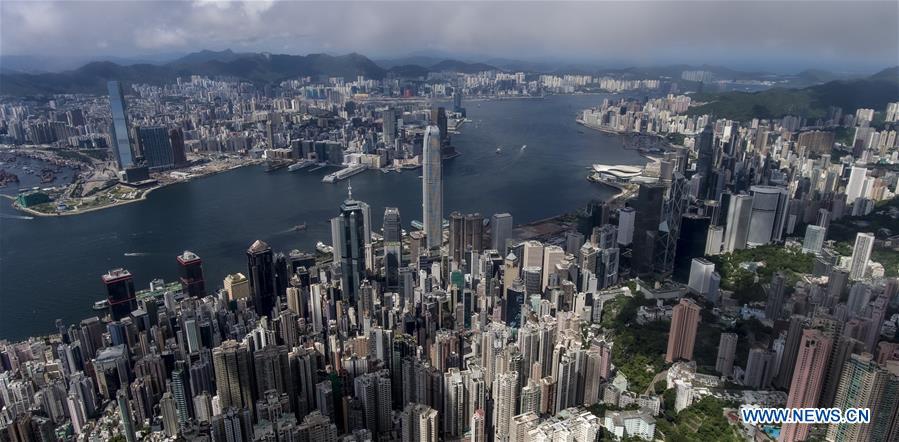China advised to target US journalists in HK
By Zhang Hui Source: Global Times Published: 2020/8/4 21:48:41 Last Updated: 2020/8/4 17:48:41
Chinese reporters have yet to receive visa renewal, could trigger retaliation

Photo taken on July 16, 2020 shows the Avenue of Stars in Tsim Sha Tsui of south China's Hong Kong. (Xinhua/Li Gang)
China could impose visa restrictions on American journalists in Hong Kong as a countermeasure against US suppression, which was aimed at forcing Chinese journalists in the US out of the country by not extending their visas, analysts said.
None of the Chinese journalists in the US who applied for visa extensions after the US limited visa terms for them to 90 days in May have yet to recieve a clear response, Chinese Foreign Ministry spokesperson Wang Wenbin said Tuesday. If the US continues on its wrong path, China will be forced to make a proper response and safeguard its legitimate rights and interests, Wang said.
Some Chinese analysts have urged the Chinese government to impose visa restrictions on American journalists in the Hong Kong Special Administrative Region (SAR) as part of countermeasures.
On whether American reporters in Hong Kong will be targeted, Wang said that the Hong Kong SAR is part of China, and any necessary and proper response that China is forced to take against the US' unreasonable suppression of Chinese media falls under the diplomatic jurisdiction of the central government.
The US Department of Homeland Security announced on May 8 that Chinese reporters working for non-US media outlets would be restricted to 90-day work visas, and will be permitted to apply for extensions of up to 90 days. The new rule took effect on May 11.
Chinese journalists may be forced to leave the US if their visas are still not extended in the coming days.
A Chinese journalist in the US told the Global Times on Tuesday that there are so many uncertainties on US' next move.
"Our visas will expire soon, so we applied for a renewal, and now everything is pending," the journalist said.
It will be difficult for them to book flights back home if the US denies their visa applications at the last minute and does not leave them enough preparation time. Failing to leave the US on time will make their stay illegal, the journalist said.
Li Haidong, a professor at the Institute of International Relations of the China Foreign Affairs University, told the Global Times on Tuesday that the US is forcing Chinese journalists out of the US, and this is part of its de-coupling strategy with China.
The US intension is so obvious that China should not have any illusion on this, Li said.
The Trump administration's move is driven by presidential elections. Trump is now betting all his chips on shifting blame to China, and he blamed China for the US' worsening coronavirus situation and economic downturn, and hoped to successfully sell his story to Americans, Li said.
He said China could target American journalists based in Hong Kong as a countermeasure, and the Hong Kong SAR government will fully cooperate with the central government.
Visa matters fall within a country's sovereignty, and are in accordance with "one country, two systems" and Hong Kong's Basic Law, the Chinese Foreign Ministry said, after the SAR government refused to renew the visa of Victor Mallet, a Hong Kong correspondent of the Financial Times in 2018, after he, as vice president of Hong Kong's Foreign Correspondents' Club, hosted a speech by secessionist Andy Chan Ho-tin.
Some American media in Hong Kong also frequently made biased reports during the social unrest in Hong Kong last year, and CNN's Hong Kong bureau chief apologized to Hong Kong police in August 2019 for creating rumors that police used petrol bombs and water cannons against protesters.
The US has been intensifying its political suppression of Chinese media out of a Cold War mentality and ideological bias since 2018, and China has been compelled to take reciprocal measures against American journalists in China.
China in early July required the China-based bureaus of the Associated Press, UPI, CBS and NPR to provide in written form information about their staff, finances, operations and properties in China within seven days, after the US in June listed four more Chinese media outlets as foreign missions rather than media outlets in the US.
The US in March slashed the number of Chinese nationals allowed to work at the US offices of major Chinese media to 100 from 160.
Posted in: DIPLOMACY